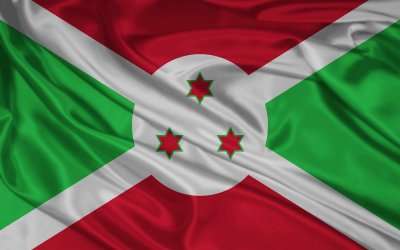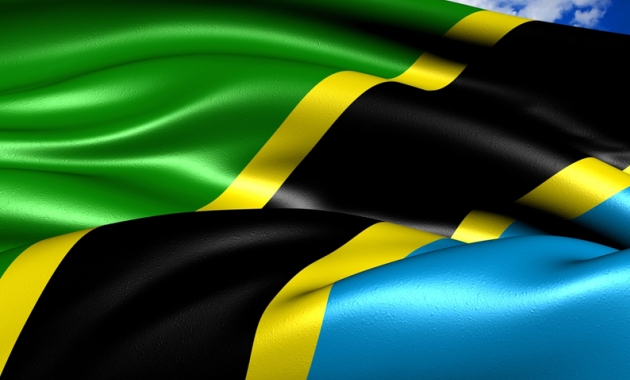By Ashnah Kalemera |
Eight current or previous grantees of the Africa Digital Rights Fund (ADRF) have been awarded grants to scale their digital rights policy advocacy efforts. Across six countries – Cote d’Ivoire, Kenya, Mozambique, Namibia, Senegal and Somalia – the thematic focus of the advocacy intervention areas includes women’s rights online, digital accessibility for persons with disabilities, social media regulation, and digital entrepreneurship. One initiative, with a continent-wide focus, will explore digital authoritarianism.
The grants, totalling USD 63,000 were awarded under the fourth round of the ADRF which sought to deploy six-months policy advocacy campaigns that further the conversation on internet freedom in Africa.
In Somalia, the Women in Media Initiatives in Somalia (WIMISOM) will conduct three roundtable engagements – in Garowe, Mogadishu and a nationwide one – to further raise awareness about women’s digital rights issues and push for policy and practice reforms that contribute to the development of a safe and empowering online environment for women and girls. Targeted stakeholders will include government institutions mandated to address gender inequality and development of women and girls’ rights, ICT ministries and regulatory bodies, women’s associations and networks, social and human rights activists, technologists and innovation hubs, telecommunications operators and digital financial service providers. These efforts will build on previous ADRF-supported advocacy campaigns as well as skills and knowledge building on women’s safety and security online in Somali territories.
Similarly in Namibia, the local chapter of the Internet Society (ISOC) will run a nationwide campaign on gender-based violence online with the aim to inform the review of the Data Protection and Cybercrime bills, as well as amendments to the Combating Domestic Violence Act 2003. The campaign will feature surveys alongside analysis of the bills, which will feed into multi-media survivor stories, safety and security tips, and a citizens’ call to action/endorsement on the need for safe spaces online. Under the inaugural round of the ADRF, ISOC Namibia was supported to work with women parliamentarians, political activists and various other actors in a campaign to tackle politically motivated gender-based violence online during the November 2019 elections.
In Mozambique, the continued push for digital inclusion through web accessibility campaigns will see Forum de Organizacoes de Pessoas com Deficiencia (Mozambique Disabled Persons Orgazations Forum) – FAMOD – engage disability rights organisations (DPOs), web developers and the government to create an open source, open access library of reusable code for accessible web components to support online entrepreneurship, eLearning and access to eServices.
Still on digital inclusion, in Cote d’Ivoire, Action et Humanisme will build on previous ADRF-supported stakeholder dialogues on internet accessibility for persons with disabilities to further engage with DPOs, entrepreneurs, activists, and telecommunications operators to develop policy recommendations on internet accessibility and affordability for persons with disabilities. The recommendations will be tabled before policy makers and government entities.
Building on from the success of the “protect our online space” series of dialogues supported by the ADRF under Round 2, Digital Shelter went on to host monthly coffee meet ups to promote engagement on digital rights in Somalia. In continuation, Digital Shelter will engage key stakeholders including journalists, women’s rights groups, ICT ministry officials and the Office of the Prime Minister on the need for legal and regulatory frameworks that promote safety and security online. Specifically, Digital Shelter will advocate for building mechanisms to combat cybercrime including bullying, trolling and harassment. Furthermore, Digital Shelter will engage the Ministry of Trade, innovation hubs and academia on skills and knowledge building in digital rights and digital entrepreneurship targeting youth.
Despite having in place a Digital Economy Blueprint whose vision is a “digitally empowered citizenry living in a digitally enabled society”, Kenya introduced an inhibitive digital taxation regime in 2020. In this regard, Mzalendo Trust will convene forums on challenges faced in the country’s digital economy. The first forum will bring together key stakeholders from the ICT sector, including private sector alliances and associations, civil society organisations, economic think tanks, the Kenya Revenue Authority, academia, the Ministry of ICT, the Ministry of Trade, and the business community to deliberate on inclusion in the digital economy.
The second forum will convene policy makers including Committees of Parliament and the recently established Office of the Data Protection Commissioner on policy frameworks for consumer protection in the digital economy. Wider awareness raising within the project will take the form of social media chats, publication of policy briefs and commentaries.
Many countries on the continent are moving towards social media regulation. The Senegalese government is among those that have initiated steps to put in place a regulatory framework for social media. Jonction Senegal will analyse the draft bill on social media regulation and engage stakeholders through targeted convenings and online campaigns on the proposed law’s provisions on free speech and censorship.
Lastly, leveraging its wide cross-national network of individual contributors and partners in the journalism, not-for-profit, legal, private sector, academia, tech, policy, innovation and activism spaces in Africa, Global Voices – Sub-Saharan Africa, Middle East and North Africa will convene a design workshop to explore the impact of digital authoritarianism on the African continent and make recommendations that foster an online space that promotes digital rights and an inclusive digital economy. The recommendations will form the basis of a white paper for wider policy advocacy on issues including access, affordability, infrastructure, safety and security online.
The ADRF is an initiative of Collaboration on International ICT Policy for East and Southern Africa (CIPESA), established in 2019 to offer flexible and rapid response grants to initiatives in Africa to implement activities that advance digital rights, including advocacy, litigation, research, engagement in policy processes, digital literacy and digital security skills building. The ADRF’s supporters have included the Centre for International Private Enterprise (CIPE), the Ford Foundation, the Swedish International Development Cooperation Agency (Sida), the German Society for International Cooperation Agency (GIZ), and the Omidyar Network.



